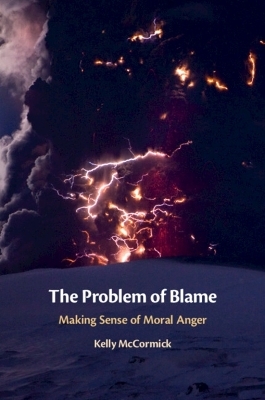
The Problem of Blame
Making Sense of Moral Anger
Seiten
2024
Cambridge University Press (Verlag)
978-1-108-82741-6 (ISBN)
Cambridge University Press (Verlag)
978-1-108-82741-6 (ISBN)
McCormick explores and analyses the nature of blame itself, what basic desert of blame amounts to, and how this affects our most important and widely accepted philosophical accounts of moral responsibility.
This book makes a case for the permissibility of reactive blame – the angry, harmful variety. Blame is a thorny philosophical problem, as it is notoriously difficult to specify the conditions under which an agent is deserving of blame, is deserving of blame in the basic sense, and furthermore why this is so. Kelly McCormick argues that sharpening the focus to reactive, angry blame can both show us how best to characterize the problem itself, and suggest a possible solution to it, because even reactive blame is both valuable and deserved in the basic sense. Finally, McCormick shows how, despite the many facets of the dark side of blame, adopting an explicitly victim-centered approach highlights a powerful argument from empathy for retaining reactive blame and its attendant attitudes and practices.
This book makes a case for the permissibility of reactive blame – the angry, harmful variety. Blame is a thorny philosophical problem, as it is notoriously difficult to specify the conditions under which an agent is deserving of blame, is deserving of blame in the basic sense, and furthermore why this is so. Kelly McCormick argues that sharpening the focus to reactive, angry blame can both show us how best to characterize the problem itself, and suggest a possible solution to it, because even reactive blame is both valuable and deserved in the basic sense. Finally, McCormick shows how, despite the many facets of the dark side of blame, adopting an explicitly victim-centered approach highlights a powerful argument from empathy for retaining reactive blame and its attendant attitudes and practices.
Kelly McCormick is Associate Professor of Philosophy at Texas Christian University. She has published a number of articles on blame, desert, and moral responsibility in journals including Philosophical Studies, The Journal of Value Inquiry, and The Journal of Ethics & Social Philosophy.
Introduction; Part I. The Permissibility of Blame: 1. The problem of blame; 2. The structure of basic desert; 3. Blame and the reactive attitudes; 4. Solving the problem of blame; Part II. Prescriptive Preservationism and Eliminativism: 5. The methodological burdens for eliminativism; 6. Free will, responsibility, and reference; 7. Facing the dark side.
| Erscheinungsdatum | 22.09.2021 |
|---|---|
| Zusatzinfo | Worked examples or Exercises |
| Verlagsort | Cambridge |
| Sprache | englisch |
| Maße | 152 x 229 mm |
| Gewicht | 348 g |
| Themenwelt | Geisteswissenschaften ► Philosophie ► Ethik |
| Geisteswissenschaften ► Philosophie ► Metaphysik / Ontologie | |
| Geisteswissenschaften ► Psychologie ► Sozialpsychologie | |
| Sozialwissenschaften ► Soziologie ► Mikrosoziologie | |
| ISBN-10 | 1-108-82741-1 / 1108827411 |
| ISBN-13 | 978-1-108-82741-6 / 9781108827416 |
| Zustand | Neuware |
| Informationen gemäß Produktsicherheitsverordnung (GPSR) | |
| Haben Sie eine Frage zum Produkt? |
Mehr entdecken
aus dem Bereich
aus dem Bereich


